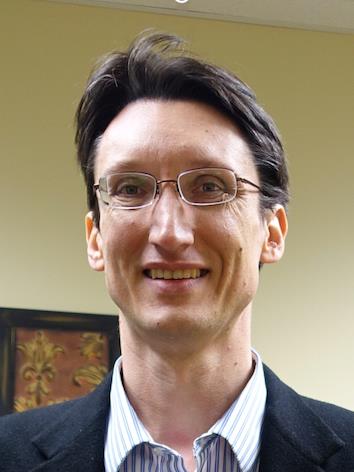People

Clifford Smyth
Professor
Office: Petty 103
Email: cdsmyth@uncg.edu
Personal Website: http://www.uncg.edu/~cdsmyth/
Starting year at UNCG: 2008
Office Hours: T & TR 2:00 p.m. - 3:15 p.m.
Education
Degree(s): Ph.D. in Mathematics, Rutgers University (2001)
Teaching
Fall 2023- MAT-253 LEC (Discrete Mathematical Structur), TR 12:30-1:45, PETT 217
- MAT-453 LEC (Mathematical Data Science I), TR 3:30-4:45, PETT 007
- MAT-653 LEC (Math Data Science I Foundatns), TR 3:30-4:45, PETT 007
- MAT-799 DTS (Dissertation)
Research
Member of the Research Group(s): Combinatorics, Mathematical Biology
Current Students: Matt Farmer (Ph.D.)
Former Students: Davorin Stajsic (M.A.), James Rudzinski (Ph.D.)
Selected Publications
- Restricted Stirling and Lah number matrices and their inverses,
Journal of Combinatorial Theory, Series A, 161 (2019) p. 271-298.
with David Galvin and John Engbers. - Topological approaches to skin disease image analysis
2018 IEEE International Conference on Big Data
with Yu-Min Chung, Chuang-Shen Hu, and Austin Lawson. -
The dual BKR inequality and Rudich’s conjecture,
Combinatorics, Probability, and Computing, Volume 20, Number 2, (2011) pages 257–266.
with Jeffry Kahn and Michael Saks. -
Enumeration of non-crossing pairings on bit strings,
Journal of Combinatorial Theory, Series A, Volume 118, Number 1, (2011) pages 129–151.
with Todd Kemp, Karl Mahlburg, and Amarpreet Rattan. -
Codes identifying sets of vertices in random networks,
Discrete Math, Volume 307, Number 10, (2007), pages 1094–1107.
with Alan Frieze, Julian Moncel, Miklos Ruszinko, and Ryan Martin. - The hardness of 3-uniform hypergraph coloring,
Combinatorica, Volume 25, Number 5 (2005), pages 519–535.
with Irit Dinur and Oded Regev.
Brief Biography
Dr. Smyth earned his Ph. D. in mathematics in 2001 from Rutgers University, advised by Mike Saks. Afterwards, he held postdoctoral positions at the Institute for Advanced Study, Carnegie Mellon University, and MIT until joining UNCG in 2008. His research interests lie in discrete mathematics, including problems coming from combinatorial probability, theoretical computer science, discrete geometry, and combinatorial enumeration.





